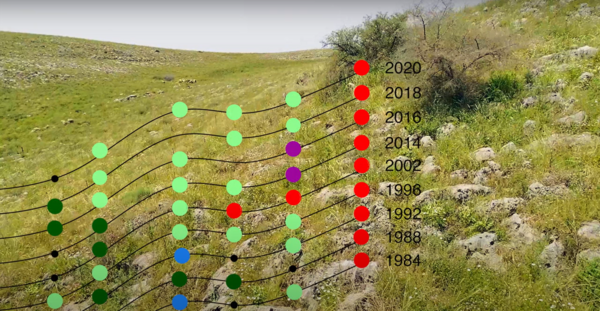The PRO-WILD project builds on years of research at the Ammiad site in northern Israel, where wild wheat populations have been studied since 1984. Located near the Sea of Galilee, this area has been designated as a nature reserve for in-situ conservation and has been sampled in a variety of ecological niches. More than 800 samples from 100 marked points have been genotyped over 36 years, revealing a highly diverse population. These genotypes, clustered by microhabitat, show remarkable stability over time, providing valuable insights into how wild populations change in response to climatic changes.
Building on this wealth of data, PRO-WILD will extend this research by studying additional populations over a longer period of time and using advanced genotyping methods such as exome capture. This will provide deeper insights into the functional role of genes associated with adaptation to both microhabitats and broader ecological factors. By studying changes in these populations during a period of rising temperatures, PRO-WILD aims to understand adaptive responses to climate change and the potential for long-term survival.
This research is crucial for the conservation of wild plant biodiversity, as it could inform strategies for conserving genetic resources valuable for crop development. In-situ conservation, as demonstrated by the work at Ammiad, shows that high levels of biodiversity can be maintained in relatively small areas, making it a key approach to protecting essential genetic resources for the future.
Find out more by watching the video here: Ammiad Research Video
Contact
Prof Avraham A Levy
Weizmann Institute of Science
mailto:avi.levy(at)weizmann.ac.il
Reference
Dahan-Meir T, Ellis TJ, Mafessoni F, Sela H, Rudich O, Manisterski J, Avivi-Ragolsky N, Raz A, Feldman M, Anikster Y, Nordborg M, Levy AA (2024) 36-year study reveals stability of a wild wheat population across microhabitats. Mol Ecol:e17512. doi:10.1111/mec.17512

 tap and then scroll down to the Add to Home Screen command.
tap and then scroll down to the Add to Home Screen command.